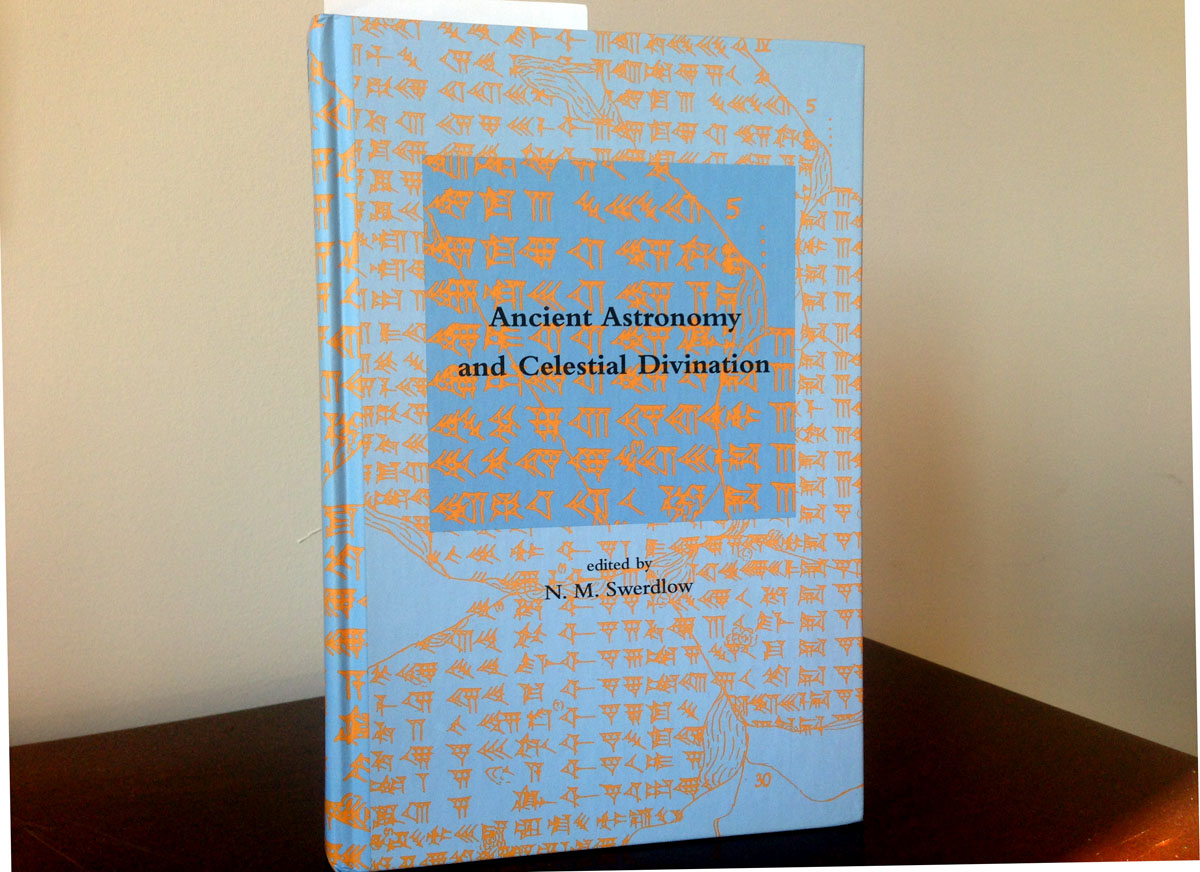
Ancient Astronomy and Celestial Divination. Edited by N.M. Swerdlow. The Massachusetts Institute of Technology Press, 1999. 378 pages.
Babylonia: A Very Short Introduction. Trevor Bryce. Oxford University Press, 2016. 142 pages.
I confess that I don’t find the history of Babylonia very interesting. But I think there’s a reason for that. It’s that we don’t know enough about Babylonia to satisfy my historical curiosity, much of which is about imagining what it might have been like to live in that time and place.
What I find most interesting about Babylonia is how scientific they were. They were pretty darn good at mathematics. Their base 60 math, for example, is still with us today, because we divide circles into 360 degrees, and we divide minutes into 60 seconds and hours into 60 minutes. And Babylonian philosophy probably set the stage for Greek philosophy.
Most of what we know about Babylonia has to do with kings, dynasties, and wars with Babylonia’s neighbors. Yawn. Archeology has revealed surprisingly little, partly because one city was built on top of another, and the water table now stands above the level of the oldest ruins. We have some literature, such as the Gilgamesh epic. But I personally find the Gilgamesh story too old and too remote to mean much today.
So, to my lights, the most interesting part of the history of Babylonia is its astronomy. The earliest astronomy though, should really be regarded as astrology. Its chief purpose was divination to guide the decisions of kings. In the last centuries of Babylonia, though (around 500 B.C.) the study of the stars became truly mathematical and scientific. And astrology became more democratic, so that ordinary people, and not just kings, could have their astrological fortunes told.
Most of what we know about Babylonia comes to us in the form of clay tablets, of which there are a great many. Scribes used a wooden stylus to make marks on wet clay tablets. The tablets were baked. The tablets were regarded as valuable, so over the centuries many of them were preserved.
I have not done a search for historical novels set in Babylonia. But, if I did, I think the most interesting characters would be the astronomers. They constantly watched the sky, day and night. They were supported by the kings, so their observatories must have been nice places — towers, I would hope. And because there was a constant dialogue between the astronomers (or astrologers) and the kings, palace intrigue could help drive the plot.
By the way, this is the first book I have read in Oxford’s series of Very Short Introductions. There are hundreds of titles. I’ll be checking out more those titles in the future. As for the MIT book on ancient astronomy, it’s very technical, and most of the astronomy goes way over my head. However, I enjoy reading books that I don’t fully understand, because there is always something to be learned.

